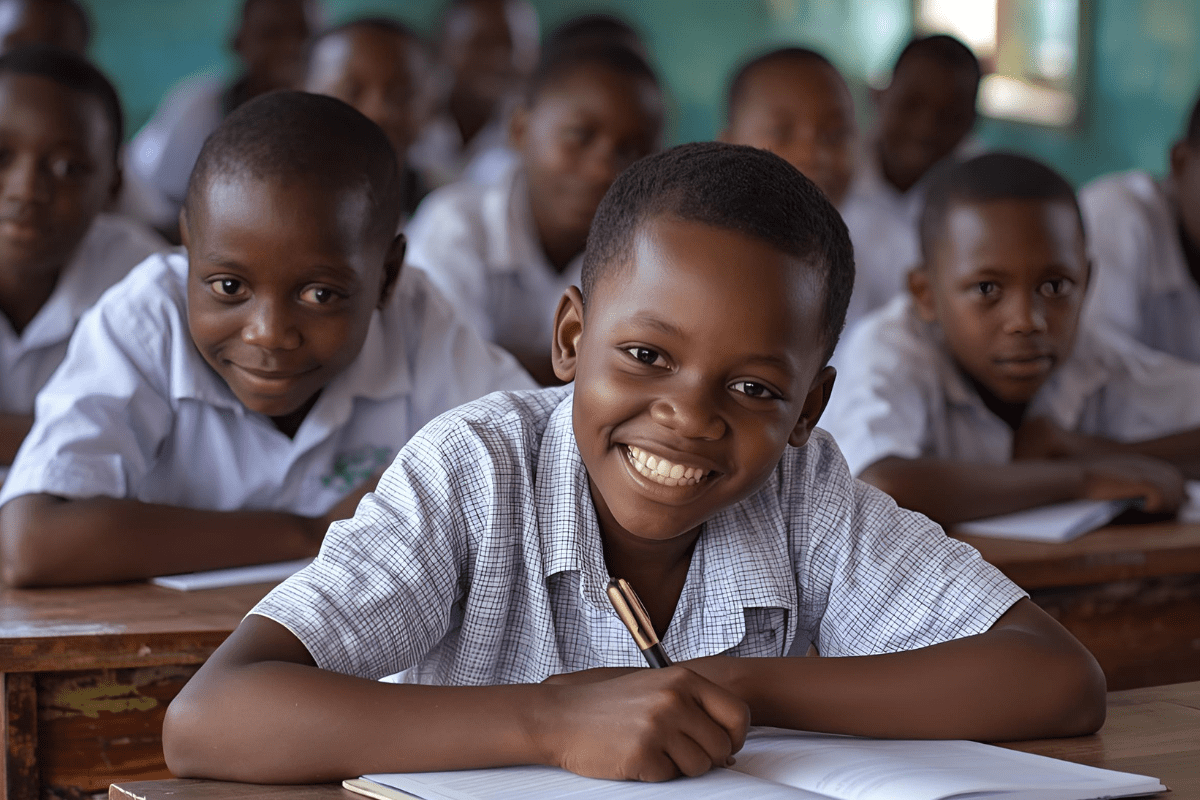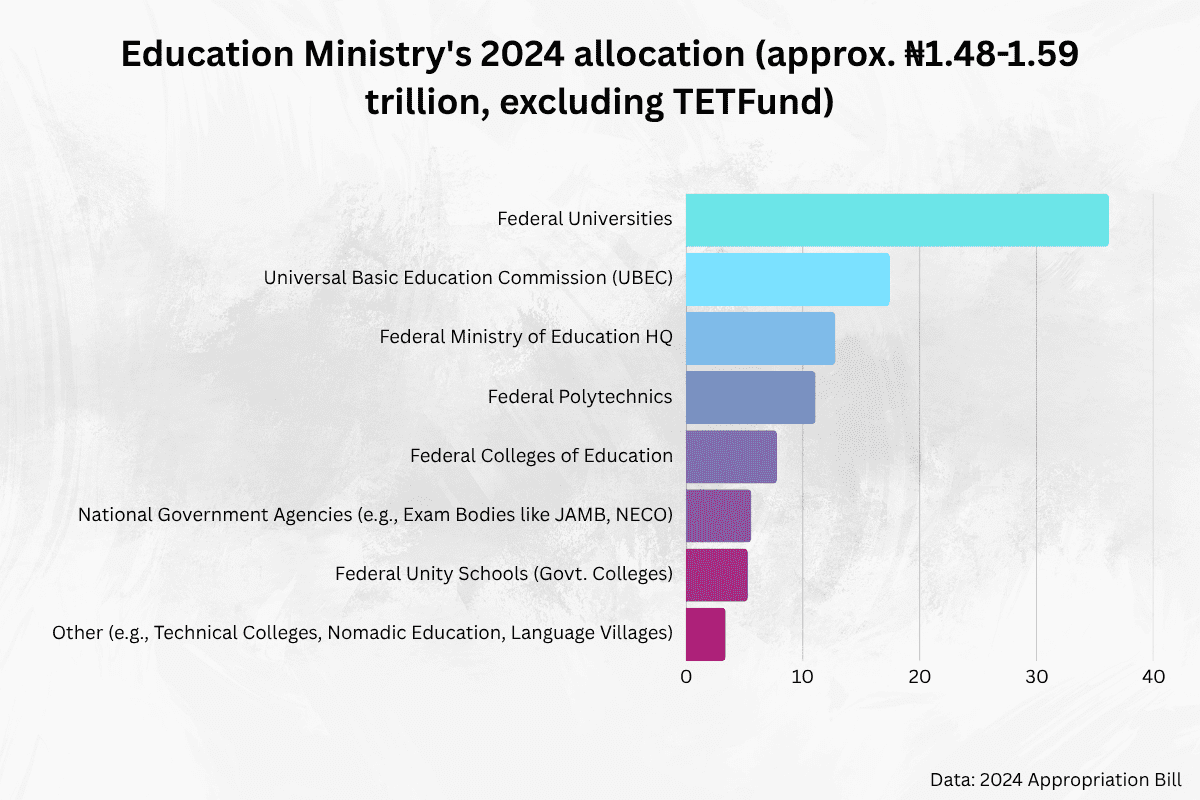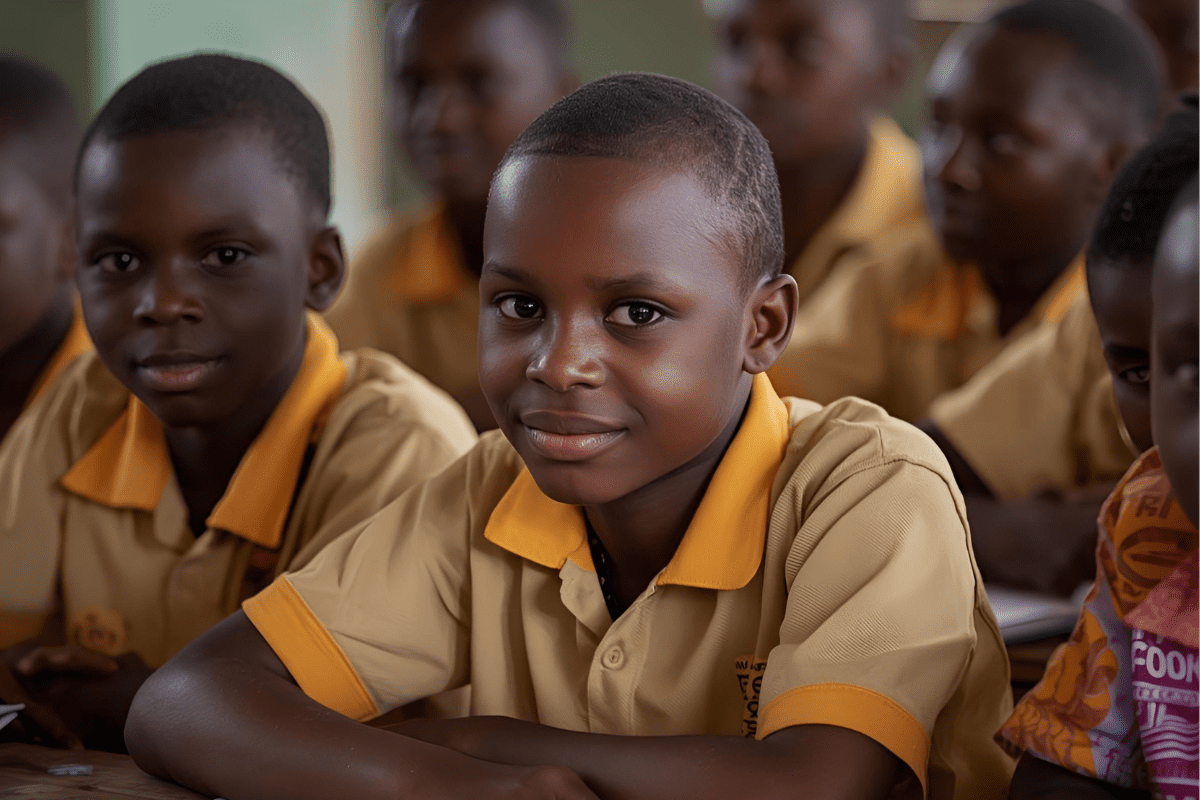Bridging the Gap: How Generative AI is Transforming Nigerian Education and the Fight for Equity

The integration of generative AI into Nigeria’s educational landscape emerges amid one of the most severe learning crises globally. A 2024 UNICEF report reveals that over 18.3 million Nigerian children are currently out of school-the highest figure worldwide.
For those fortunate enough to attend school, challenges persist, especially in rural regions where a single teacher may be responsible for instructing upwards of 100 students.
In response, Nigeria’s 2024 budget earmarked ₦1.59 trillion for education, representing roughly 5.5% of total government expenditure. Although this marks a notable increase, the majority of funds are allocated to staff salaries, leaving limited resources for infrastructure development and systemic reforms. Critics argue that this allocation remains insufficient to address the magnitude of the educational crisis.

Within this strained environment, generative AI technologies such as ChatGPT, Google Gemini, Microsoft Copilot, alongside locally developed edtech solutions, are beginning to be incorporated into classrooms and study habits.
This technological shift prompts critical reflection on who truly benefits from AI in education, who remains excluded, and whether these tools will bridge or exacerbate Nigeria’s longstanding educational disparities.
Generative AI’s Potential Impact on Nigerian Education
Internationally, platforms like Khan Academy’s Khanmigo and Duolingo are revolutionizing education by providing round-the-clock tutoring and adaptive learning experiences, especially valuable in regions with teacher shortages.
In Nigeria, innovative edtech companies are striving to bring similar advancements to local students. uLesson, a pioneer in this space, delivers tailored lessons and interactive assessments across West Africa.
In mid-2024, uLesson integrated AI to enhance its offerings, launching an AI-driven homework assistance feature named “Ask.” Recognizing connectivity challenges, it also provides offline access via SD cards to support students in low-bandwidth areas.
Sim Shagaya, uLesson’s founder, explained, “Currently, no one is scaling AI solutions fast enough to tackle Africa’s educational challenges. Think of uLesson as a ‘teacher in your pocket’-leveraging smartphones and tablets to bring personalized learning to students and parents alike.“

The Nigerian government has also demonstrated commitment through programs like Inspire for Students and Ignite for Teachers, which aim to facilitate virtual classrooms and assist educators with lesson planning.
This aligns with the National Digital Learning Policy (2023), which advocates for the ethical deployment of AI to improve the inclusivity, efficiency, and effectiveness of digital education. At GITEX Nigeria 2025, Kashifu Inuwa Abdullahi, Director-General of the National Information Technology Development Agency (NITDA), emphasized AI’s crucial role in boosting educational productivity and called for its accelerated adoption in schools.
Generative AI’s greatest strength lies in its ability to provide personalized, immediate support-something often unattainable in overcrowded classrooms where one teacher manages dozens of students. AI can offer additional explanations, practice exercises, and feedback, reinforcing learning beyond school hours. For students in remote or under-resourced schools, this could be transformative.
While private sector innovators lead initial AI education initiatives, government bodies like NITDA and the Ministry of Education are working on frameworks to ensure responsible and equitable AI integration.
The hope is that generative AI will deliver scalable, cost-effective, and adaptive educational assistance, addressing gaps that traditional systems have struggled to close. However, achieving this requires prioritizing accessibility, affordability, and fairness from the outset.
Addressing Equity: Who Risks Being Excluded?
Despite its promise, the expansion of generative AI in Nigerian education risks replicating existing inequalities. Infrastructure deficits that keep millions out of school also threaten to limit who can benefit from digital learning tools.
Data from the Nigerian Communications Commission (NCC) indicates broadband penetration stood at just 48.15% as of April 2025, with rural areas experiencing significantly lower connectivity due to unreliable mobile networks. Additionally, the high cost of data remains prohibitive; for many families living on less than ₦1,000 daily, streaming a short educational video can rival the price of a meal.
These challenges surfaced in a survey of 18 students: half praised AI’s helpfulness in their studies, while the other half found it confusing or inaccessible.
One university student from Ibadan shared, “AI has sped up my assignments and made learning more engaging. I use ChatGPT to get feedback on my essays.” Conversely, a student from Kano remarked, “Accessing the school portal is difficult enough, let alone AI applications.“

Language barriers further complicate AI adoption. Most AI platforms operate primarily in English, while many rural students are more comfortable with Yoruba, Hausa, Igbo, or other indigenous languages. Effective translation and localization are essential to making AI truly accessible.
Experts stress that embedding AI within Nigeria’s educational framework requires contextual adaptation. Ayoola Akinyeye, Director of Schools at Chrisland Schools, told Premium Times, “AI should be integrated not only as a subject but as a teaching aid across disciplines. Adoption must move beyond hype to meaningful, context-aware application.“
uLesson’s efforts to align content with local curricula and enable offline use exemplify how localization can mitigate connectivity challenges.
A Kano student noted, “It’s easier to use AI when I ask questions in English, but sometimes it struggles with my spelling or accent.” For learners like him, AI tools risk reinforcing rather than bridging the digital divide.
Access disparities are also evident between private and public schools. While some private institutions in Lagos and Abuja have begun incorporating AI chatbots into lessons, many public schools still lack basic necessities such as electricity and chalk.

One teacher from Ogun State candidly stated, “We don’t even have enough textbooks, let alone computers.” Another from Kaduna added, “AI could be beneficial, but only if it reaches public schools. Right now, it’s a privilege for the wealthy.“
This divide reflects Nigeria’s broader digital inequality: without access to smartphones, reliable electricity, and affordable data, AI remains a concept rather than a practical tool.
Nonetheless, optimism persists. A University of Lagos student expressed hope that AI could “support learners in rural areas if the government steps in with infrastructure and subsidies.” This sentiment was echoed by many survey participants who desire inclusion through cheaper data, improved connectivity, and AI platforms that accommodate local languages.

Generative AI holds the potential to tailor education to millions of Nigerian students, but unless these tools are designed with real-world constraints-such as intermittent internet, limited budgets, and multilingual classrooms-in mind, they risk widening the very educational gaps they aim to close.
When asked about the reliability of AI-generated content, only one-third of respondents expressed full trust. Many reported cross-referencing AI outputs with textbooks or consulting lecturers before incorporating the information into their work.
The data also highlights a growing urban-rural digital divide: students in metropolitan schools report greater familiarity and access to AI tools, while those in rural or public schools often remain excluded.
Ensuring Accountability in AI Integration
The introduction of AI into education raises pressing questions about oversight: who governs its use, safeguards student privacy, and guarantees that AI enhances learning outcomes?
Currently, Nigeria lacks a comprehensive national policy specifically regulating AI in education. The draft National Artificial Intelligence Strategy (NAIS) addresses innovation and governance broadly but does not focus on classroom applications.
The National Information Technology Development Agency (NITDA) includes education within its Strategic Roadmap and Action Plan (SRAP 2.0), yet experts note that concrete implementation guidelines remain unclear. There are no established protocols for managing student data, ensuring transparency, or protecting minors from algorithmic biases.
UNESCO has cautioned that hasty AI adoption without proper safeguards could exacerbate educational inequalities.

A Lagos-based teacher shared, “We are told AI will improve teaching, but no one has provided training or clear guidance on its use.” The concern extends beyond fears of AI replacing educators to worries that teachers might be sidelined in the design and deployment of AI tools. As one participant noted, “AI can’t replace us, but if we don’t learn to use it, it might make us invisible.“
This apprehension resonates globally. UNESCO Director-General Audrey Azoulay has emphasized that “teachers must remain central to education even as AI becomes more prevalent in classrooms.“
Data governance is another critical issue. Generative AI platforms depend on vast amounts of data-including student essays, personal details, and interaction logs-to customize learning experiences. Without robust regulation, this data risks misuse for commercial gain or accidental exposure.
Dr. Kashifu Inuwa Abdullahi stressed that data protection “must be a cornerstone of Nigeria’s AI strategy.”
However, enforcement mechanisms are currently weak. The Nigeria Data Protection Act (2023) offers some legal framework, but lacks clear penalties for misuse of educational data or transparency requirements for AI platforms regarding information shared with students and parents.
Funding sources also raise questions about accountability. Many AI education projects rely on donor or private sector funding, prompting concerns about whose interests are prioritized. Are these initiatives genuinely addressing Nigeria’s learning crisis, or are they fostering dependence on foreign technologies?
Education analyst Abiola Sanni from Lagos remarked, “AI tools must be tailored to our classrooms, not the other way around. Without local content policies, Nigerian schools risk becoming testing grounds for imported software.“
Consensus among experts and educators is that the future of AI in Nigerian education hinges not only on technological innovation but also on governance frameworks that define ownership, transparency, and ethical use. Presently, these policies are still under development, even as many schools experiment with AI without clear guidance.
The impact of AI in Nigeria’s education sector varies widely depending on context.

In Lagos, some private schools are piloting AI tutors, while a student from Kano highlighted, “Most of my classmates can’t afford data, so these tools remain out of reach for many.“
Among survey participants, nearly half reported using generative AI tools like ChatGPT, Gemini, or Copilot for assignments or exam preparation. A second-year student at the University of Lagos shared, “AI helps me simplify complex topics and draft outlines quickly. It’s like having a tutor available anytime.“
It’s important to note that Nigeria’s data costs remain among the highest in Africa relative to income.
Teachers are adapting with mixed feelings. A secondary school teacher in Abeokuta encourages students to use AI for summaries and explanations but worries about accuracy, stating, “Sometimes AI provides incorrect answers, and students take them as absolute truth.“
However, in rural areas, the reality is more challenging. A 17-year-old student in Ibadan said, “We’ve heard about these apps, but our teachers tell us to focus on textbooks because there’s no Wi-Fi at school.“
Generative AI: Shaping the Future of Nigerian Education
Generative AI has the potential to democratize education, but only if supported by sound policies, robust infrastructure, and comprehensive teacher training. While it cannot immediately solve the problem of 20 million out-of-school children, it could help prevent future generations from being left behind.
AI offers personalized learning experiences, the ability to translate content into local languages, and tools to assist teachers in managing large classrooms more effectively. Yet, without intentional investment and policy frameworks, AI risks deepening existing disparities rather than alleviating them.
Dr. Bosun Tijani, Nigeria’s Minister of Communications, Innovation and Digital Economy, underscores this point, advocating for inclusive AI deployment.
To realize AI’s benefits, policymakers must ensure equitable access regardless of location or income. This involves developing offline learning solutions, expanding broadband infrastructure, and integrating indigenous language support so that students in Abeokuta, Sokoto, Lagos, and Abuja can equally benefit.

Teacher preparation and ethical guidelines are equally vital. For AI to complement rather than replace educators, teachers must be actively involved in the design and implementation of AI tools.
The trajectory of AI in Nigerian education will ultimately depend on decisions made today: whether the country chooses to build an equitable, accountable educational future or allows algorithms to perpetuate existing inequalities.
This article was developed with support from the Centre for Journalism Innovation and Development (CJID) and Luminate.







Leave a Reply